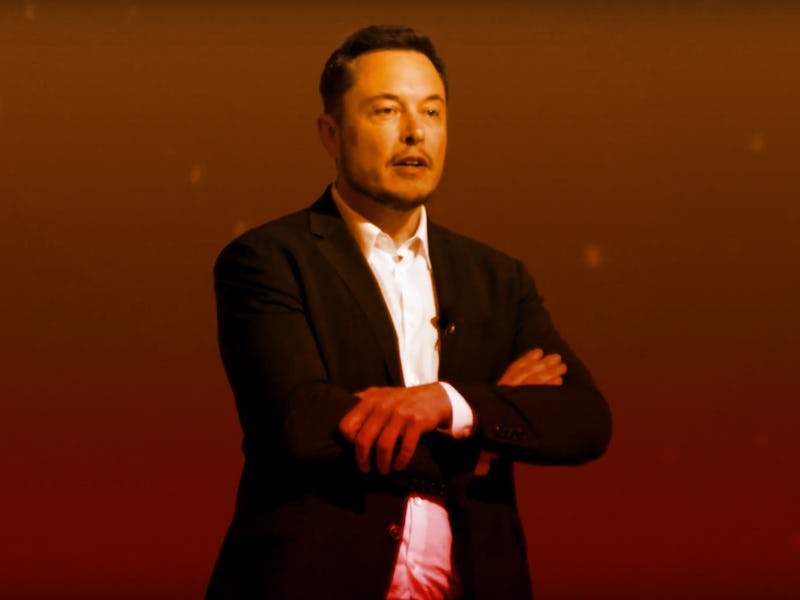Elon Musk Shares Rapid A.I. Advancement: "The Future Is Accelerating"
The tech entrepreneur founded Neuralink to preempt this shift.

Elon Musk is concerned about the future of artificial intelligence, an outlook that’s changing all the time. On Sunday, the tech entrepreneur shared a link to a retrospective look at 2017 in the nascent field, a look back that helps understand how ultra-smart machines could influence all areas of life.
It’s in keeping with Musk’s interests, who founded Neuralink as a way of ensuring humans aren’t left behind in the coming machine revolution. The Wired restospective highlights why this work is so necessary: while noting achievements like Sophia becoming the first robot to receive a nationality, as drone-piloting programs took to the skies, the story also notes the implicit biases in man-made machines, like denying a man of Asian descent’s passport application because it claimed he was blinking, or an A.I.-judged beauty pageant that favored lighter skin. A number of big-name firms also experminented in the area, with Facebook chatbots lying to people almost immediately.
See more: Facebook Let Its A.I. Negotiate, and the Lying Started Right Away
Musk has expressed his fears around artificial intelligence before. In July 2017, Musk told a meeting of U.S. state governors that “A.I. is a fundamental risk to the existence of human civilization.” In November of that year, he called on government to regulate artificial intelligence and provide public oversight. These interventions have seen a mixed response, with researcher Pedro Domingos simply tweeting in response “sigh.”
Even without looking to the future, Musk has sounded the alarm over existing uses of artificial intelligence. In October 2017, he decried the Google Clips auto-picture-taking machine as something that “doesn’t even seem innocent.” The same month, he also dismissed the plan to develop a super-intelligent religious machine, claiming that the inventor Anthony Levandowski should be “on the list of people who should absolutely not be allowed to develop digital superintelligence.”
Musk’s interventions in the world of A.I. have slowed down this year somewhat, as Tesla works to expand its output nearly tenfold and SpaceX aims to test-fire its Mars-bound rocket. That doesn’t mean Neuralink is standing still, though, as the company claimed in 2017 it will launch a product “that helps with certain severe brain injuries (stroke, cancer lesion, congenital)” by around 2021.
The future of artificial intelligence is looking decidedly fast.